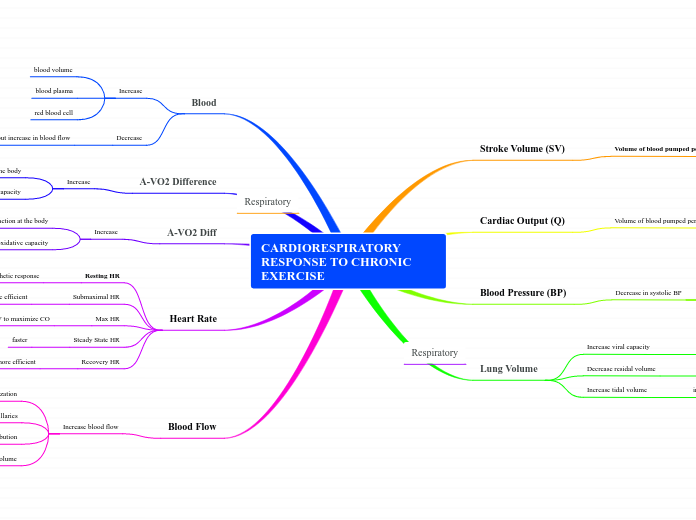par Fairuz Umairah Il y a 5 années
376
CARDIORESPIRATORY RESPONSE TO CHRONIC EXERCISE

par Fairuz Umairah Il y a 5 années
376

Plus de détails
Use this mind map structure to discover unseen connections, generate new ideas and reach a better understanding of any given subject.
In the conclusion you should have a brief summary of your key points.
The key points are the arguments which will support your thesis. These can be agreeing arguments or disagreeing arguments too, in each case they need to reflect on the main idea.
increase in SV
In the introduction you should state the ideas what you want to defend along the essay.
Increased heart contractility
Greater diastolic filing time
decrease heart rate
Increase in EDV
increase in blood plasma